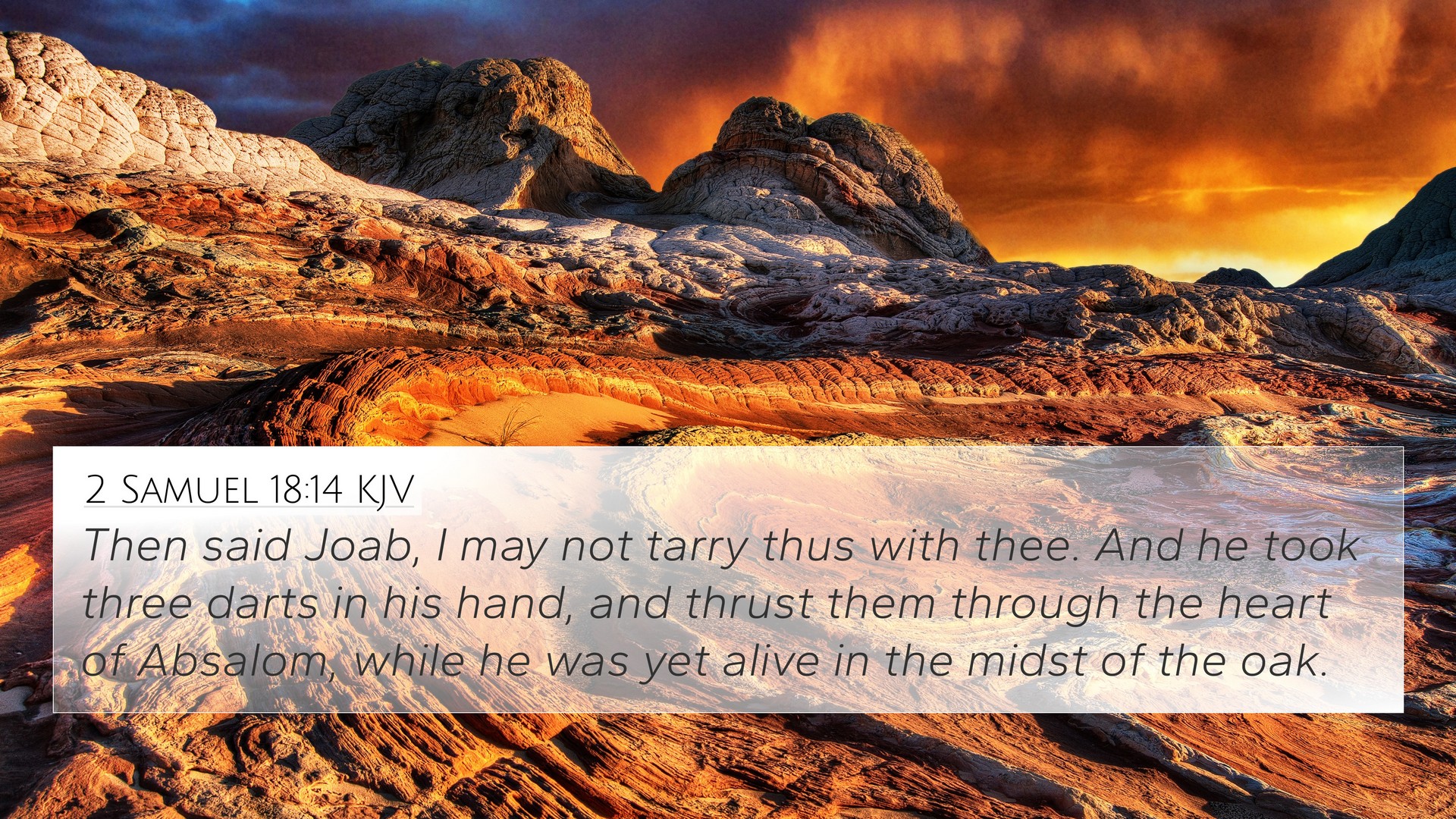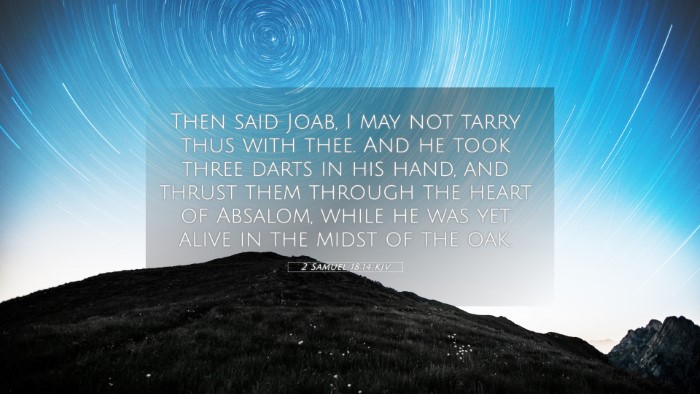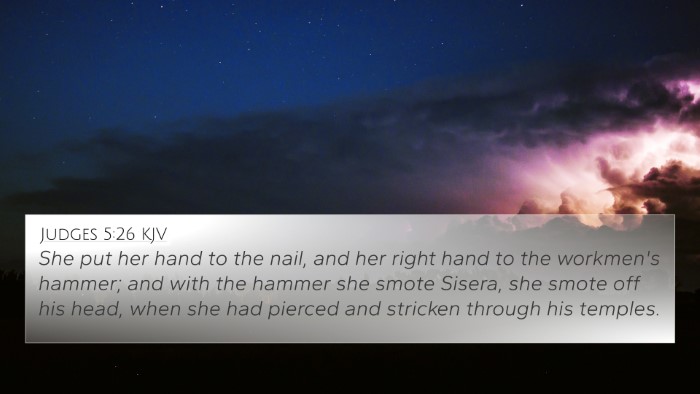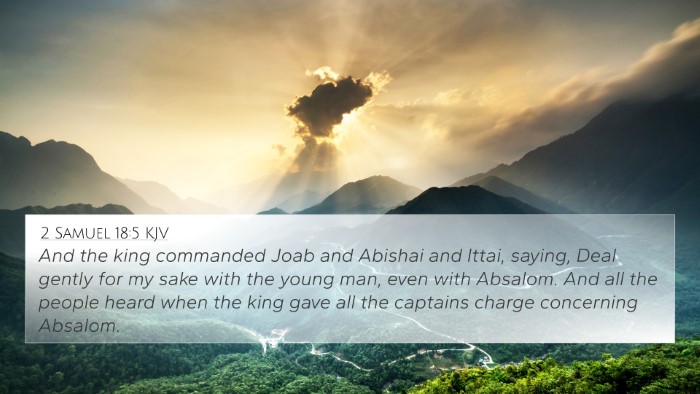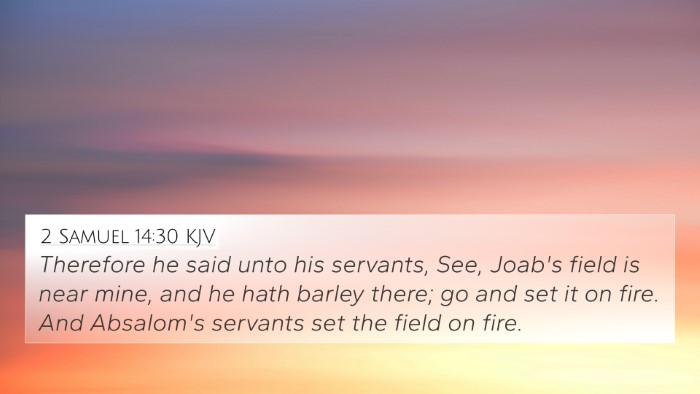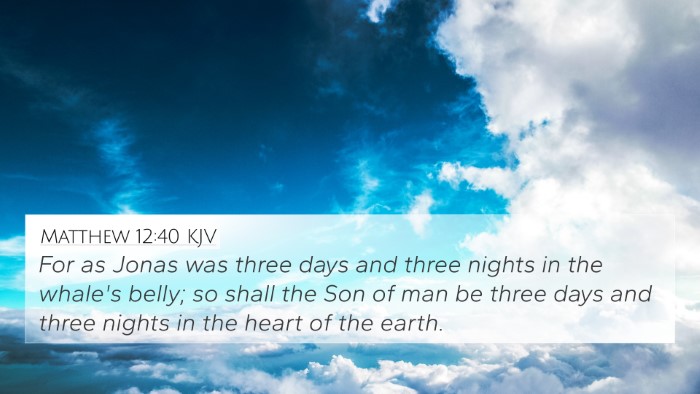Bible Verse: 2 Samuel 18:14
Verse Explanation: This verse describes a pivotal moment in the narrative of Absalom's rebellion against his father, King David. Joab, the commander of David's army, finds a way to confront Absalom, ultimately leading to a decisive moment of conflict. Understanding this verse requires an exploration of leadership, conflict, and the consequences of rebellion.
Overview of the Context:
- Absalom, David's son, has attempted to overthrow his father’s throne.
- Joab is portrayed as a military leader with complex loyalty towards David yet pragmatic in his approach.
- The conflict represents personal and national struggles between loyalty and rebellion.
Insights from Commentaries:
- Matthew Henry: Henry emphasizes the moral and spiritual layers of the narrative, suggesting that Joab's determination to kill Absalom was a mix of duty and personal conviction. He notes the tragic consequences of Absalom's rebellion not only for himself but for the entire nation.
- Albert Barnes: Barnes presents the idea that Joab's actions, while harsh, were consistent with the brutal realities of ancient warfare. He reflects on the nature of God's justice being manifest in the downfall of Absalom, warning against rebellion against divinely instituted authority.
- Adam Clarke: Clarke elaborates on the complexities of Absalom’s character, his beauty, and his tragic end, serving as a reminder of how pride goes before destruction. He contextualizes the military strategy and moral dilemmas faced in battle.
Thematic Cross-References:
This verse parallels several other biblical texts that explore themes of rebellion and its consequences. Here are biblical verses that are connected to 2 Samuel 18:14:
- 2 Samuel 15:10-12: This passage defines Absalom's intentions and lays the groundwork for his rebellion.
- 1 Kings 1:5-6: This relates to the theme of familial strife and ambition within David's house.
- 1 Samuel 15:23: This verse illustrates the importance of obedience and the dangers of rebellion against God’s anointed.
- Galatians 6:7: “A man reaps what he sows” encapsulates the moral return that follows actions, resonating with Absalom's fate.
- Proverbs 16:18: “Pride goes before destruction” succinctly ties into the hubris that drove Absalom to revolt.
- Romans 13:1: This passage addresses submission to governing authorities, echoing the theme of respect for God’s order established through David’s kingship.
- Matthew 26:52: Connects to the concept of sword and conflict, highlighting the spiritual dimensions of violent struggle.
Conclusion: 2 Samuel 18:14 serves as a critical junction in the narrative of David's reign and the complexities of familial loyalty and betrayal. The commentaries reveal layers of meaning surrounding the themes of rebellion, leadership, and divine justice, which are reflected in other biblical texts. Cross-referencing these verses enhances our understanding of scripture as interconnected, allowing insights to flow into a broader theological context.
Tools for Bible Cross-Referencing: To explore connections between Bible verses such as 2 Samuel 18:14, one can utilize various tools, including:
- Bible Concordances
- Bible Cross-reference Guides
- Online Bible Study Resources
- Bible Chain References for thematic studies
SEO Considerations:
The significance of 2 Samuel 18:14 lies not only in its immediate narrative but also in its wider theological implications, inviting readers to discover cross-references and the interplay between different scriptural themes. Understanding such connections is crucial for deeper Bible study, whether for personal growth, sermon preparation, or academic pursuit.
